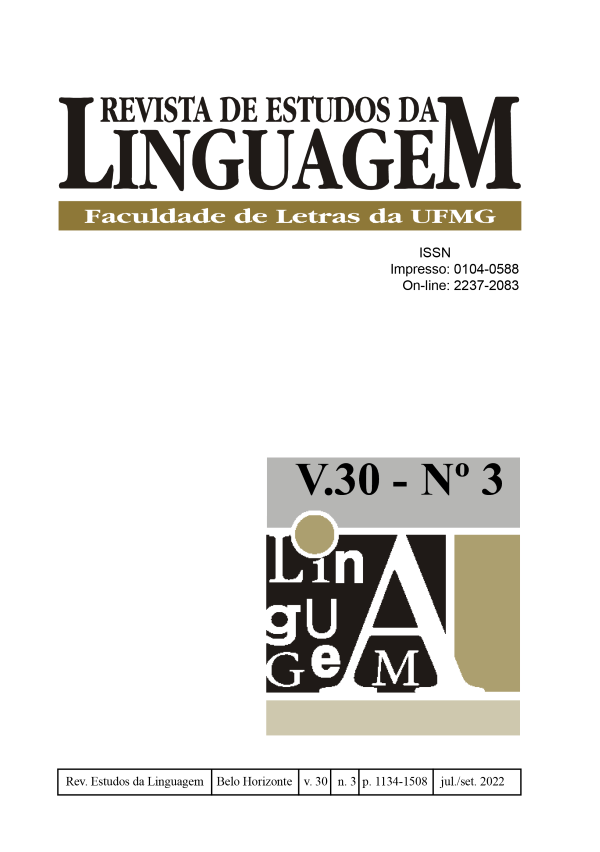Orações introduzidas por cualquiera sob a perspectiva da Gramática Discursivo-Funcional
DOI:
https://doi.org/10.17851/2237-2083.30.3.1339-1364Palavras-chave:
cualquiera, espanhol, orações concessivo-condicionais, Gramática Discursivo-FuncionalResumo
Este artigo investiga as orações introduzidas por cualquiera, no espanhol, que são concebidas dentre as orações concessivas impróprias ou concessivo-condicionais por Haspelmath e König (1998) e Flamenco García (1999). Essas estruturas são assim denominadas porque mesclam características tanto das condicionais quanto das concessivas. A fim de desvelar o funcionamento dessas orações, assumimos o modelo da Gramática Discursivo-Funcional (doravante GDF) de Hengeveld e Mackenzie (2008), com o objetivo de descrever as motivações pragmáticas ou semânticas que se manifestam nas propriedades morfossintáticas dessas estruturas. Para seleção e análise das ocorrências provenientes da modalidade escrita, elegemos o corpus CREA (Corpus de Referencia del Español Actual), banco de dados que disponibiliza textos das variedades do espanhol da América e da Espanha. Os resultados indicam que as orações introduzidas por cualquiera podem exercer tanto função semântica, no Nível Representacional, como função retórica, no Nível Interpessoal. Esse resultado sugere um novo olhar para o fenômeno em análise, apresentado pela literatura como uma estrutura híbrida, já que, neste estudo, são concebidas de forma discreta, em termos de funções.





